The Attorney General of Trinidad’s Ledgers: An Invaluable Primary Source
- Regular price
- €0,00 EUR
- Regular price
-
- Sale price
- €0,00 EUR
- Unit price
- per
Henry Fuller (1781-1854).
A; B [Two account ledgers].
October 1818 – December 1825.
2 volumes, folio (38 x 27 cm.), A: 543 pp. of multiple entries per page, dated October 1818-December 1824, with a 4 pp. index at the end. watermark dated 1812; B: [24] pp. index and 375 pp. of full-page entries, dated January 1824-December 1825. Watermark dated 1823.
Contemporary full calf with red morocco title-labels. Bookseller’s label on front paste: J.B. & John Courthope, London: “Paper and books for exportation”.
Two massive ledger volumes, seemingly complete, containing nearly one thousand entries of income and expenses, chiefly relating to British colonists, estate holders, and plantation owners in early 19th-century Trinidad (then under British rule). The entries—primarily of a legal nature—record court fees, consultations, suits, and associated expenses, and they are filled with names deeply tied to the colonial plantation economy and the system of slavery.
By far the most extensive account belongs to Henry Fuller (1781–1854), Attorney General of Trinidad and celebrated as “the Father of the Trinidad Bar.” His account is notable for its daily (rather than monthly) entries, revealing the extraordinary volume of his legal activity. Fuller himself was a significant plantation owner—among others, of Felicite Estate—and was centrally involved in colonial slavery legislation. He was appointed Attorney General in November 1814, and his role placed him at the heart of the colony’s legal, political, and economic networks.
Other prominent names appear throughout, including Robert Neilson, Casimere Dumolard, Joseph Crabtree, Charles Hugon, Victor Le Barrie, John Audain, Hamilton Veitch, Robert Orr (of Park & Orr), John Burnley Littlepage, Henry Gloster (Guardian of the Slaves), and James Taitt—who is sometimes noted as providing legal services, perhaps in Fuller’s employ. Plantations mentioned include Union Estate, Milton Estate, and Concord Estate, while the ledgers also reference the firm of Philip and George Protheroe, West India merchants, whose accounts cover both large transactions and everyday items such as gloves and sundries.
The ledgers contain repeated mentions of the trade in enslaved Africans—often referred to simply as “Negroes.” Although the transatlantic slave trade was officially abolished in 1807, the use of enslaved labor on plantations remained legal and is starkly reflected throughout the entries. Numerous cases relate to estates, ships (brigs, schooners, and their captains), bankruptcies (“concursos”), testaments, and compensation claims by slave owners. These documents capture the turbulent period leading up to the abolition of slavery in Trinidad in 1833, followed by the apprenticeship system that lasted until full emancipation in 1838.
Among the more unusual entries are:
- The King vs. Garcia (Dec. 1824, court case).
- “Adventure per Atlas” of £222.29.
- Numerous “Testamentaria” entries.
Together, these volumes offer an extraordinary and unstudied primary source for the colonial and legal history of Trinidad and the wider West Indies, documenting the economic, legal, and social structures of a plantation society in transition. They reveal not only the financial dealings of the colonial elite but also the pervasive entanglement of law, commerce, and slavery.
Further research and scholarly documentation of these manuscripts is clearly of exceptional importance.
Condition: The bindings have wear but are intact. Ledger A has damp staining at the bottom leading to some (dried out) mold in the last few pages. The affected contents remains mostly legible. Two pages have been torn out. Ledger B is in good condition.
Sources:
Centre for the Study of the Legacies of British Slavery , online at https://www.ucl.ac.uk/lbs/
Cudjoe, Selwyn R.. The Slave Master of Trinidad: William Hardin Burnley and the Nineteenth-Century Atlantic World. United States, University of Massachusetts Press, 2019.
Couldn't load pickup availability
Share
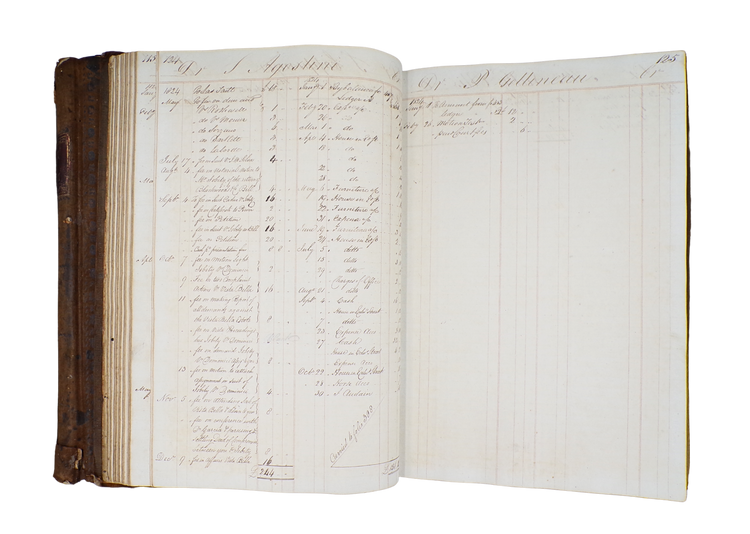
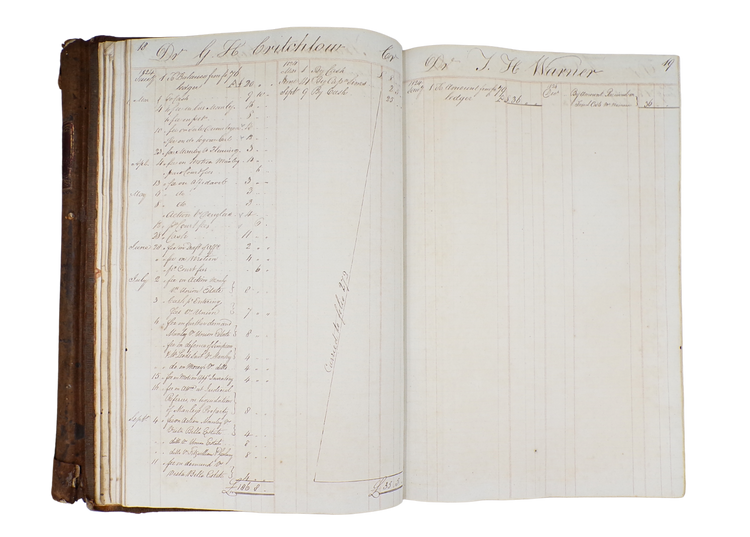
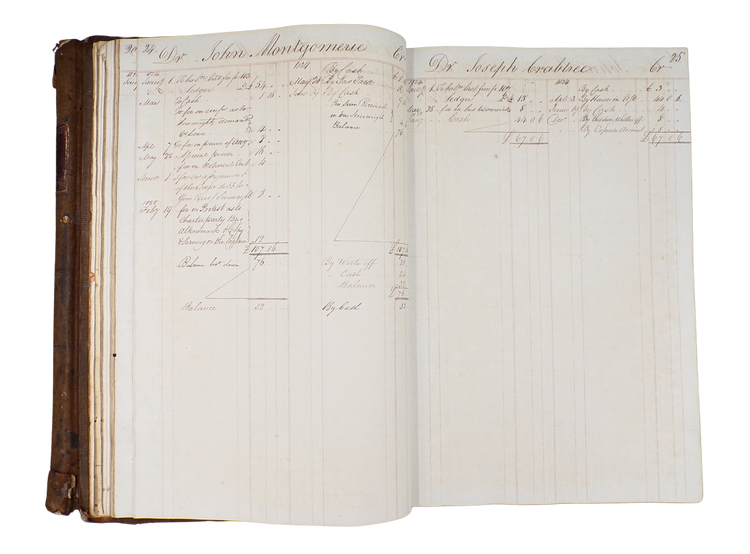
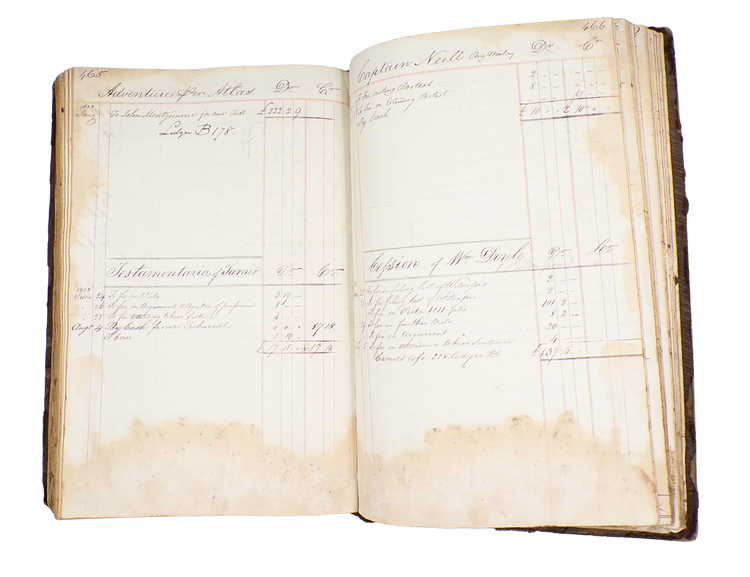
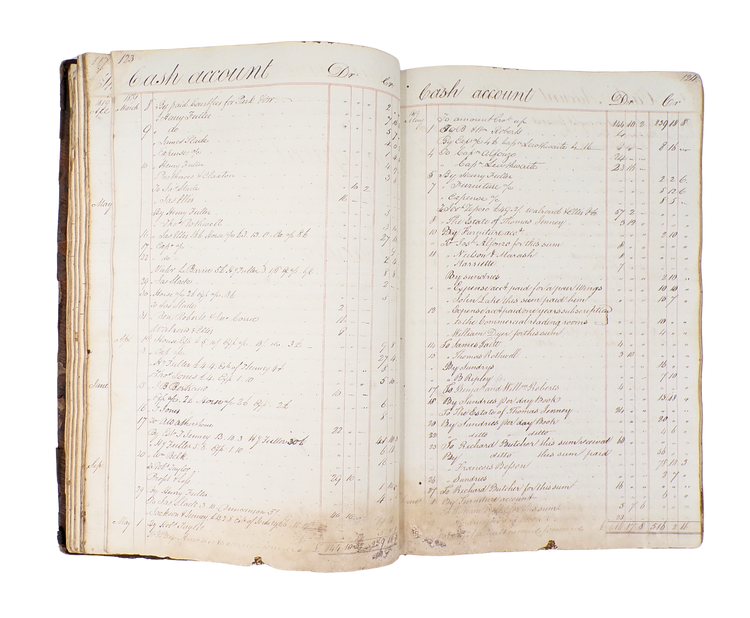
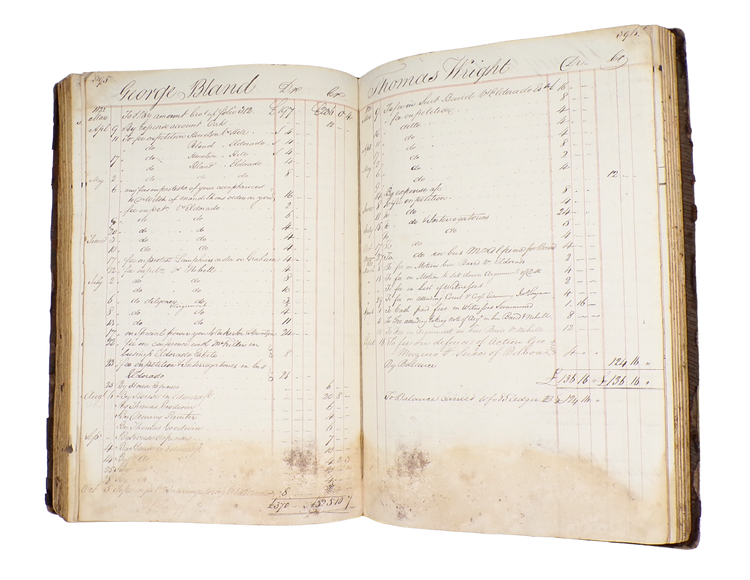
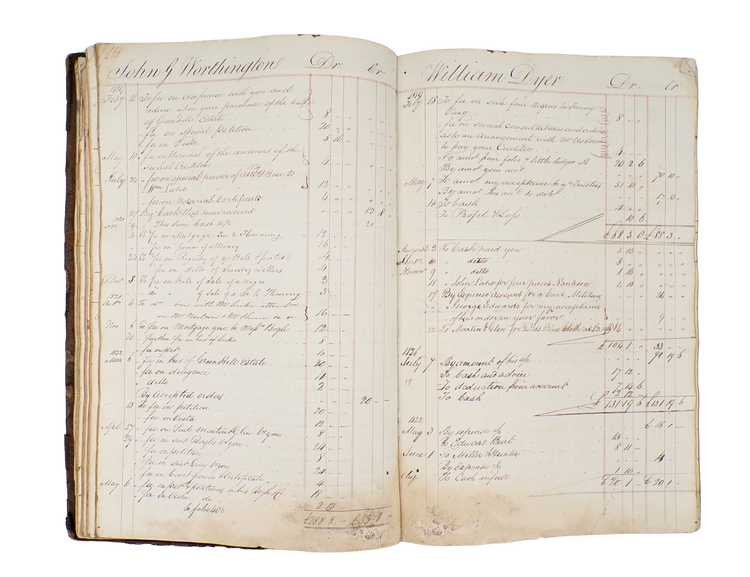
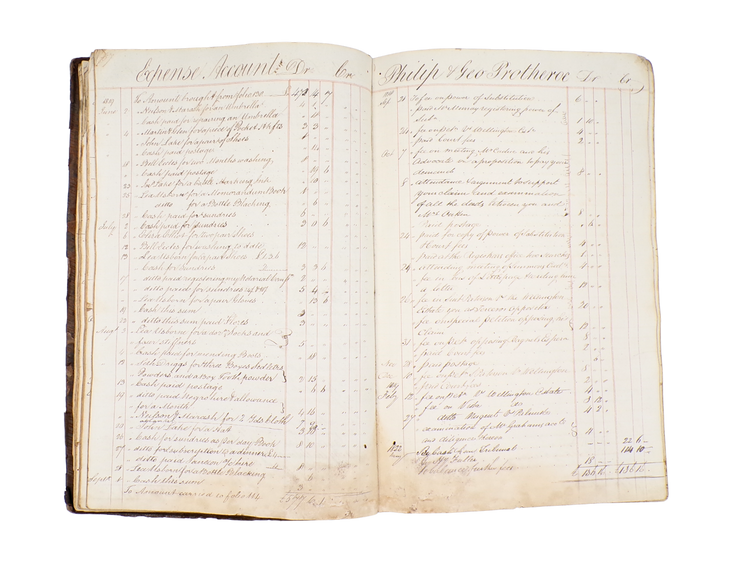
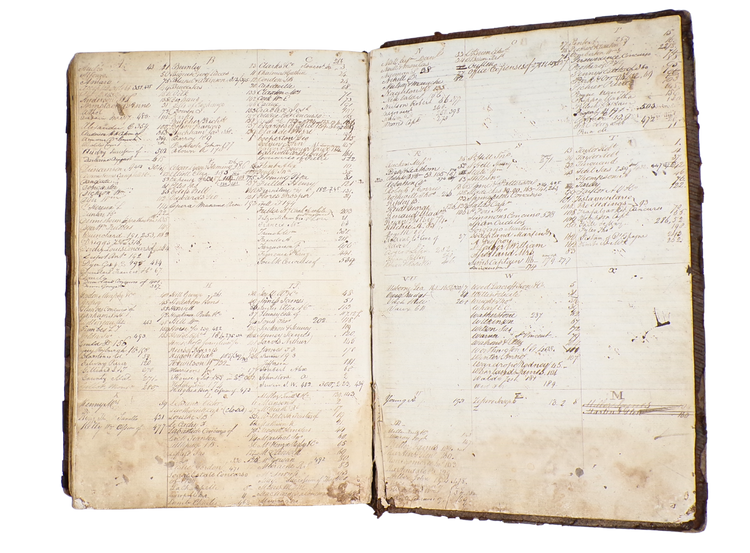
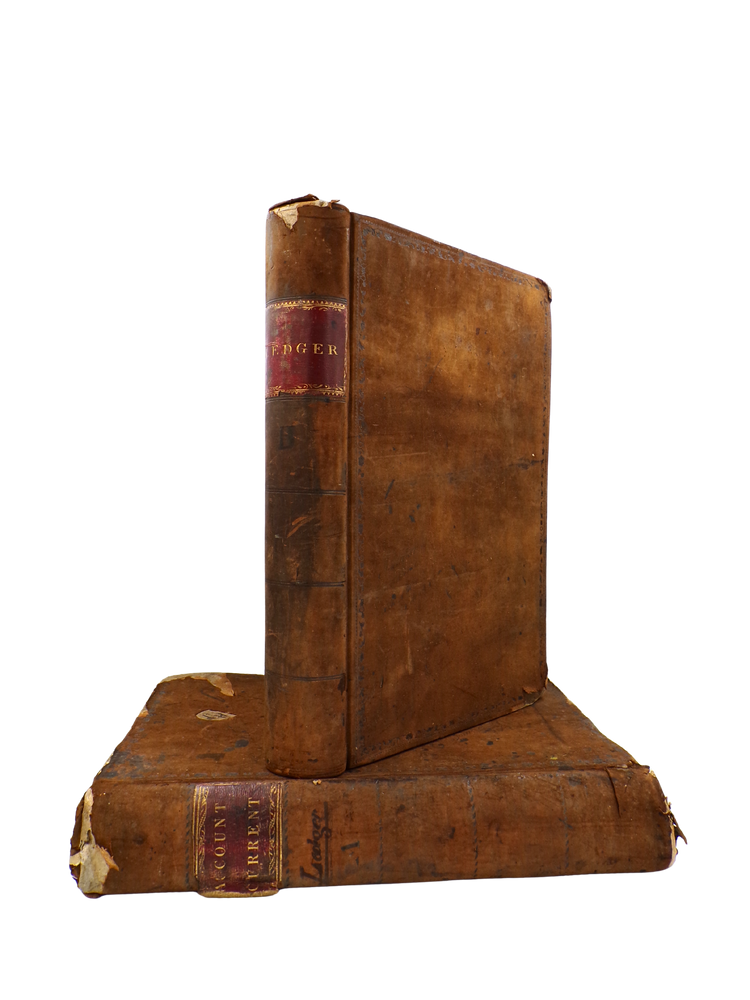
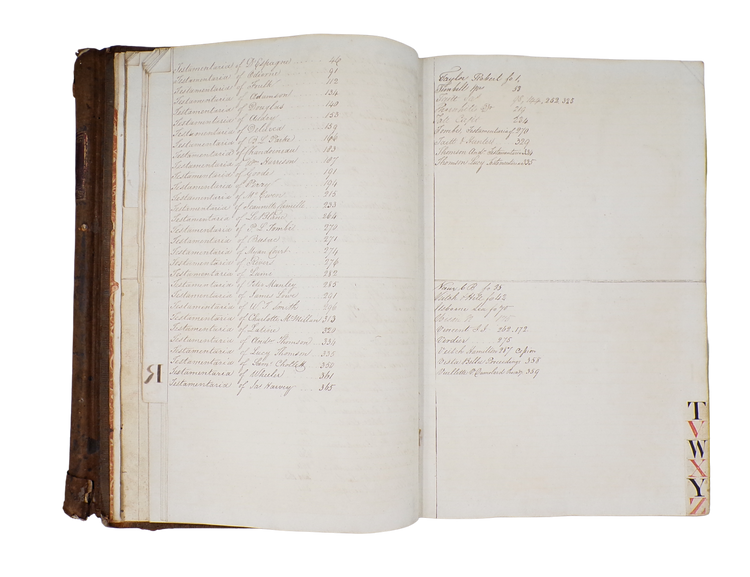
Contact
Email: hugo@artemrarebooks.com
Phone: +31651042297
Visit us on appointment at:
Former US Embassy
Lange Voorhout 102
2514EJ
The Hague (The Netherlands)
Shipping address:
Nannie van Wehlstraat 51
2548MN
The Hague
The Netherlands











